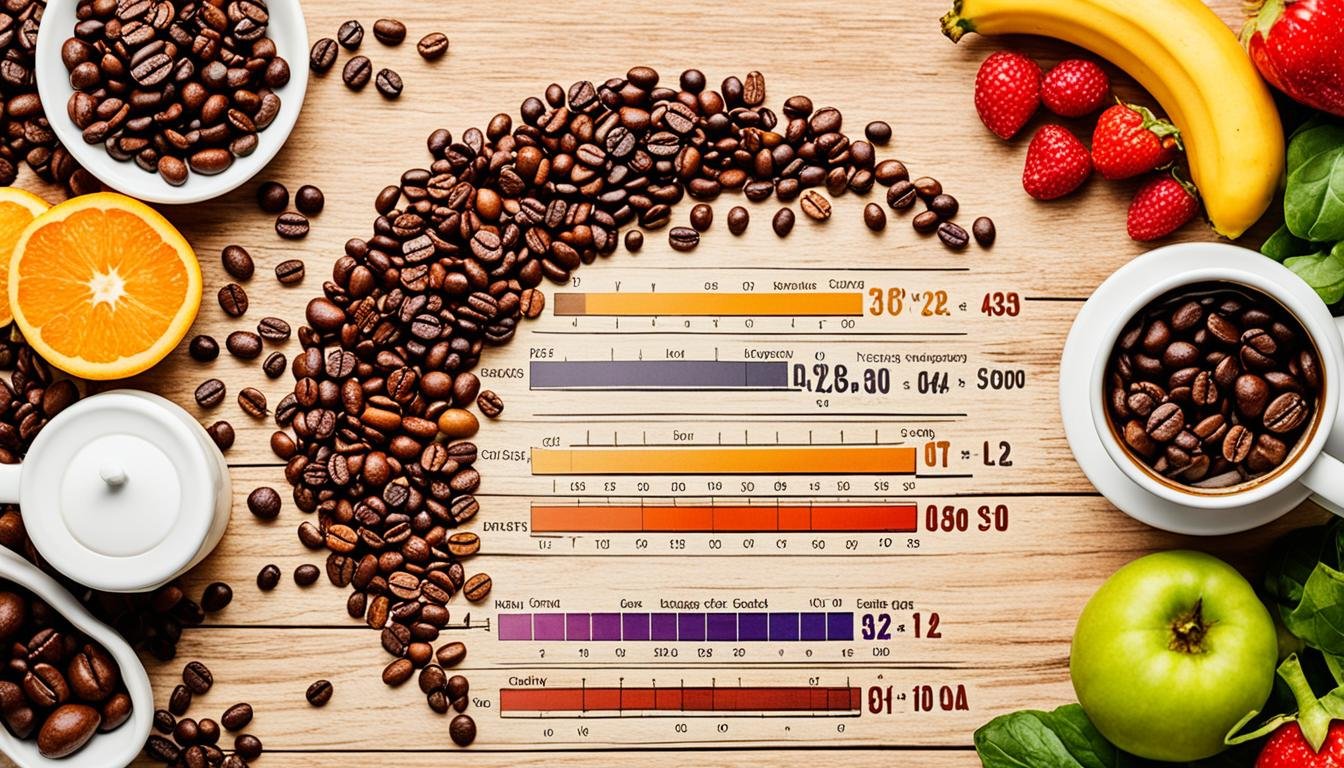One study found that individuals with type 2 diabetes who consumed 250 milligrams of caffeine per day experienced an 8% increase in blood sugar levels compared to days when they did not consume caffeine. This surprising statistic highlights the significant impact that caffeine can have on blood sugar control for those with this chronic condition.
Whether it’s from coffee, tea, soda, or chocolate, most Americans get caffeine every day. For healthy people, it’s usually a harmless perk-me-up. But if you have type 2 diabetes, caffeine may make it harder to keep your blood sugar in check. A growing body of research suggests people with type 2 diabetes react to caffeine differently, as it can raise blood sugar and insulin levels for those with the disease.
Caffeine may lower your insulin sensitivity, meaning your cells don’t react to the hormone as much as they once did, leading to higher blood sugar levels after meals. Over time, this may raise your chance of diabetes complications. However, studies also show that coffee may lower the odds of getting type 2 diabetes in the first place, likely due to its high antioxidant content.
Key Takeaways
- Caffeine can significantly impact blood sugar levels in individuals with type 2 diabetes, leading to an 8% increase in blood sugar levels with just 250mg of caffeine per day.
- Caffeine may lower insulin sensitivity, making it harder for those with type 2 diabetes to control their blood sugar levels.
- Coffee’s high antioxidant content may actually help reduce the risk of developing type 2 diabetes in the first place.
- People with type 2 diabetes may need to switch to decaffeinated coffee to better manage their blood sugar and insulin regulation.
- Individual responses to caffeine can vary based on factors like age and weight.
How Coffee Affects Blood Sugar and Insulin Levels
Scientists are still learning how caffeine affects your insulin and blood sugar levels, but they think it may work in a few ways. Caffeine raises levels of certain stress hormones, like epinephrine (adrenaline), which can prevent your cells from processing as much sugar and keep your body from making as much insulin. Caffeine also blocks a chemical called adenosine, which plays a big role in how much insulin your body makes and how your cells respond to it. Additionally, caffeine’s disruption of sleep can lower insulin sensitivity.
Caffeine’s Impact on Insulin Sensitivity
Caffeine can affect how your body responds to insulin, the hormone that allows sugar to enter your cells and get changed into energy. Caffeine may lower your insulin sensitivity, meaning your cells don’t react to the hormone by as much as they once did. They don’t absorb as much sugar from your blood after you eat or drink, causing your body to make more insulin and have higher levels after meals. This can be particularly problematic for those with type 2 diabetes, as their body already doesn’t use insulin well, leading to higher blood sugar spikes after eating.
Mechanisms of Caffeine’s Effects
Regular high caffeine consumption over a 4-week period has been shown to impair insulin sensitivity in people with type 2 diabetes. Caffeine may result in unpredictable effects on blood sugar levels for individuals with diabetes. Studies suggest it is safe for healthy adults to consume up to 400 milligrams of caffeine daily, but approximately 200 to 250 milligrams can significantly impact blood sugar levels.
Consultation with a doctor is recommended for individuals with diabetes who consume caffeine to understand its effects on blood sugar levels. People with untreated diabetes can experience severe health problems such as heart disease, vision loss, kidney failure, cognitive issues, nerve damage, and foot infections.
Decaffeinated coffee is believed to have benefits without some of the negative effects of caffeine. Lattes can contain between 10 and 15g of carbohydrates, depending on the type and size of the drink. Caffeine’s impact on blood sugar levels is complex and multifaceted, with both positive and negative effects.
How Coffee Helps Regulate Blood Sugar and Insulin Levels

While the caffeine in coffee can negatively impact blood sugar and insulin levels for those with type 2 diabetes, research also suggests that coffee may have anti-diabetic properties and can lower the risk of developing the disease in the first place. This is likely due to the high antioxidant content in coffee, which can reduce inflammation and improve insulin sensitivity.
Numerous studies have explored the relationship between coffee consumption and blood sugar regulation. A meta-analysis by Je Y. and Giovannucci E. in 2012 found that increasing coffee consumption was associated with an 11% decrease in the risk of developing type 2 diabetes over the next 4 years. Additionally, a study by Carlstrom M. and Larsson S.C. in 2018 indicated that coffee consumption is linked to a reduced risk of developing type 2 diabetes.
However, the effects of coffee on glucose homeostasis are complex and can vary depending on the individual, their caffeine tolerance, and other factors. Those with diabetes may need to monitor their response to coffee and consider switching to decaf if their blood sugar spikes after consumption. Drinking two coffees a day has been linked to a reduced risk of cardiovascular disease, early death, and developing Alzheimer’s disease.
“Proper diabetes management is essential as allowing blood sugars to be outside the normal range can lead to severe health problems such as heart disease, vision loss, kidney failure, cognitive issues, nerve damage, and foot infections.”
In conclusion, while the relationship between coffee and blood sugar regulation is multifaceted, the available evidence suggests that coffee can be a beneficial addition to a healthy lifestyle, especially for those at risk of or living with type 2 diabetes. As with any dietary change, it’s important to monitor individual responses and consult with a healthcare professional for personalized guidance.
Conclusion
In conclusion, the relationship between coffee, blood sugar, and insulin levels is a complex one. While caffeine in coffee can negatively impact glucose control for those with type 2 diabetes, coffee may also offer protective benefits against developing the disease due to its antioxidant content. Individuals should be aware of how coffee affects their personal metabolic response and work closely with their healthcare team to determine the best approach for their specific needs.
The research presented in this article highlights the nuanced and sometimes contradictory effects of coffee consumption on blood sugar and insulin levels. On one hand, studies have shown that increasing coffee intake by just over one cup per day can lower the risk of developing type 2 diabetes by 11%, while reducing coffee intake by one cup per day increases the risk by 17%. However, for those already living with type 2 diabetes, consuming coffee can lead to higher post-meal blood glucose levels.
Ultimately, your individual response to coffee will depend on factors such as your genetics, metabolic rate, and overall health status. It’s important to pay attention to how coffee affects your own blood sugar and insulin levels, and to work collaboratively with your healthcare provider to find the right balance. By understanding the complexities of this relationship, you can make informed choices about your coffee consumption and take proactive steps to support your overall metabolic health.
FAQ
How does caffeine in coffee affect blood sugar and insulin levels?
Caffeine can lower your insulin sensitivity, meaning your cells don’t react to the hormone as much as they once did. This can lead to higher blood sugar levels after meals, as your body has to produce more insulin to maintain normal blood glucose. This can be particularly problematic for those with type 2 diabetes.
Can coffee actually help regulate blood sugar and insulin in some cases?
Yes, studies show that coffee may have anti-diabetic properties and can lower the risk of developing type 2 diabetes. This is likely due to the high antioxidant content in coffee, which can reduce inflammation and improve insulin sensitivity.
What’s the overall relationship between coffee, blood sugar, and insulin levels?
The relationship is complex. While caffeine in coffee can negatively impact glucose control for those with type 2 diabetes, coffee may also offer protective benefits against developing the disease. Individuals should be aware of how coffee affects their personal metabolic response and work with their healthcare team to determine the best approach.




